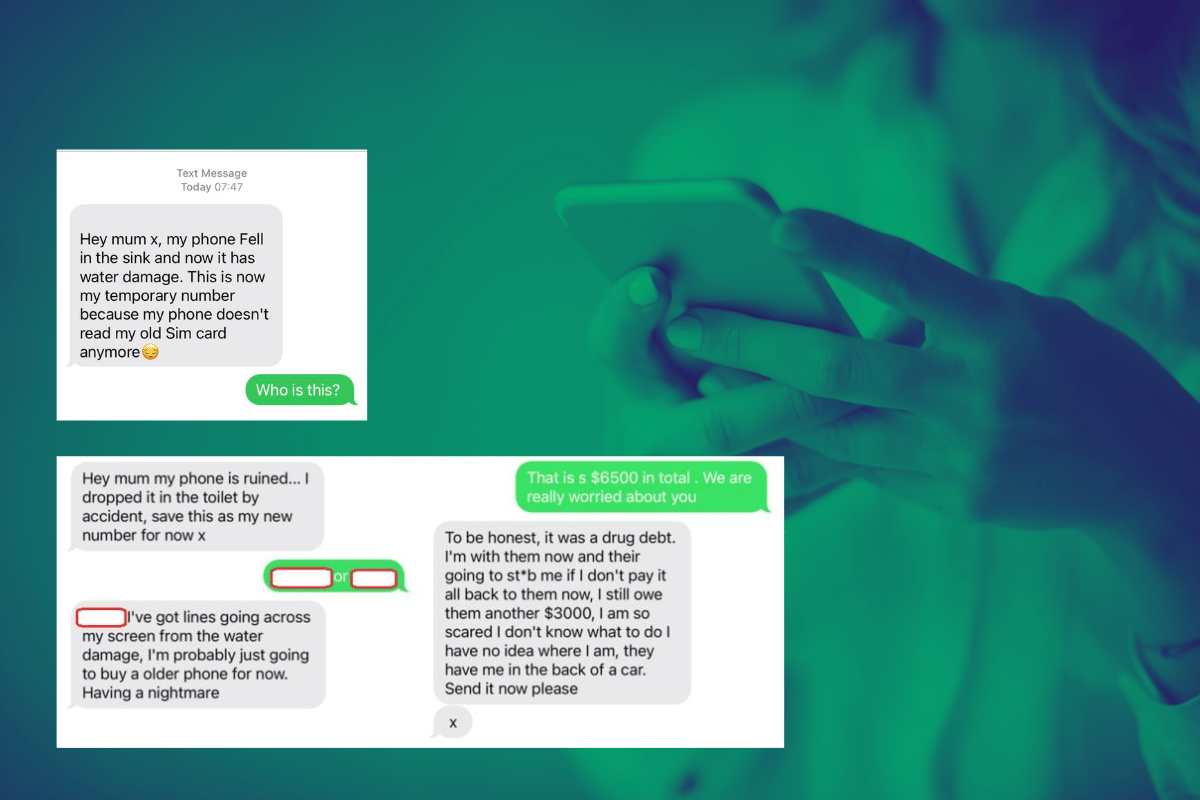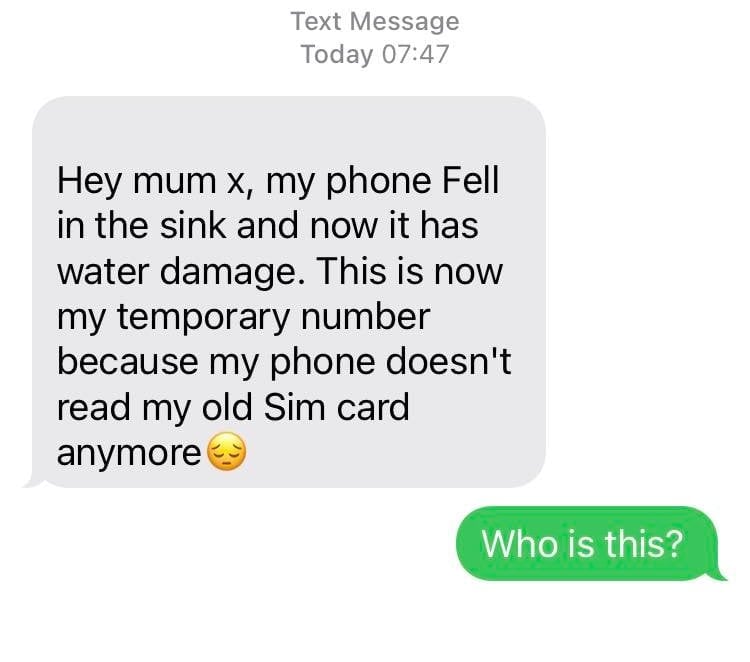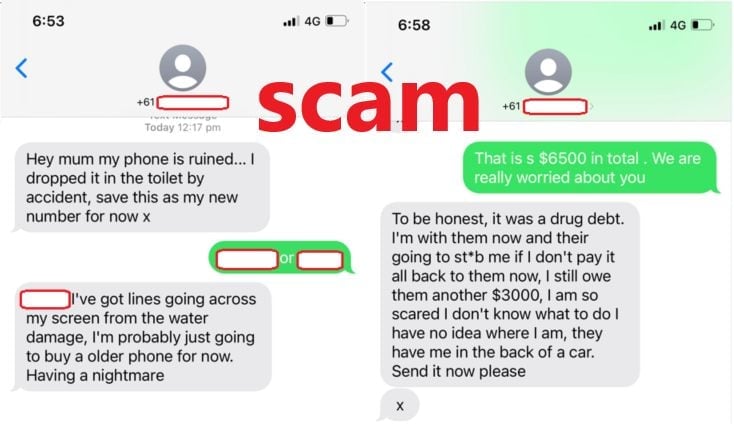
With Christmas Day just hours away, cyber security experts are asking Australians to stay vigilant against mobile phone scam messages and calls.
Cyber security expert Alastair MacGibbon told The Today Show that as we start to relax and enjoy the festive season, online criminals and scammers continue to work at targeting us.
"If you get a text from someone you don't know, just don't respond to it," he said.
One scam that continues to plague thousands of us in Australia and across the globe is the 'Hi Mum' or 'Family Impersonation' scam. The scammers attempt to pull at the heartstrings of concerned parents by fooling them into believing their kids are in trouble and need money.
The scammer assumes the identity of the son or daughter of the victim who is messaging their mum to let them know they have lost their phone and are instead using a temporary mobile number.
The message is casual in tone and attempts to build trust and connection before asking the victim for money for a variety of reasons such as being locked out of their online bank account.
 An example of the 'Hi Mum' scam message. Image: Facebook/Scamwatch.
An example of the 'Hi Mum' scam message. Image: Facebook/Scamwatch.

